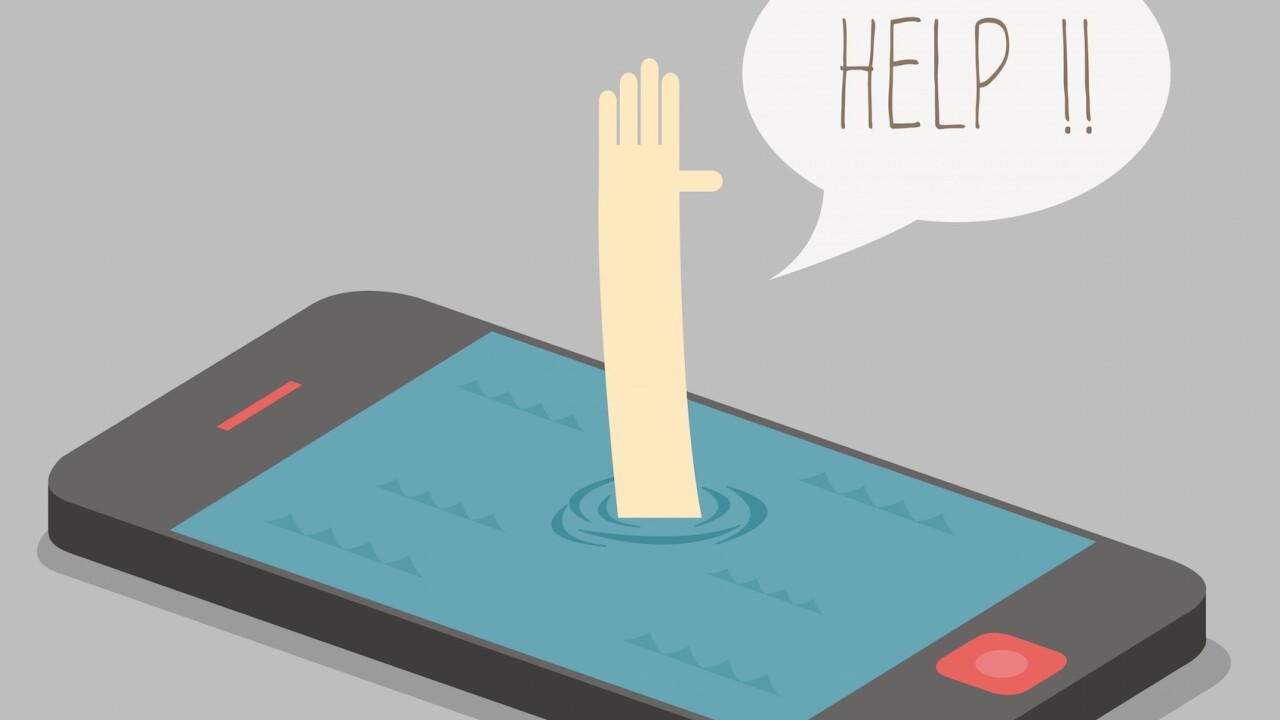
Last night I climbed into bed around 11:30 PM, plugged in my iPhone to charge and swiped to the home screen to find my favorite alarm clock app—Sleep Cycle. But before I could get to the app, I quickly opened Facebook to see if I had missed anything. One of my friend’s had just had a baby, so I liked her photo, then flipped through a few more.
Then I thought I better check Instagram, just to see if anyone commented on the photo I posted. And then a very quick check-in to the ESPN app for NBA scores, and finally a brief glance at Yahoo News Digest just in case I missed an interesting story for the evening. All of this took just a few minutes, I thought, until I glanced at the time: 12:16 AM.
Believe me: recounting last night’s bedtime routine sounds just as pathetic to me as it does to you, exacerbated by the fact that I haven’t embellished the story at all—it’s 100 percent accurate. You can relate, I’m sure. Technology has a way of absorbing our minds, pulling us into a dimension where cognitive thoughts and physical awareness slip away. I don’t have much to show for the 46 minutes I wasted last night, and that’s the point of this essay: if you don’t plan for your habits, your habits will plan for you.
The machine zone
For as long as I’ve thought about technology and how it affects us, I’ve struggled to describe that feeling—when technology takes over, time stops, and our minds float along in a hazy cloud.
A former editor for The Atlantic, Alexis Madrigal, captured my feelings accurately:
Why these words, these metaphors? We don’t cognitively grasp the state we fall into — we only feel its grip on us — the way we’ve merged circuits with the inanimate. You are the machine; the machine is you. And it feels … the words fail. In fact, it feels like words failing because it is at the edge of human experience, bleeding over into a cybernetic realm best expressed in data and code.
The best term for this feeling, Madrigal points out, is supplied by anthropologist Natasha Schüll, who calls it “the Machine Zone.” Madrigal attempts to define the Machine Zone like this: “It’s a rhythm. It’s a response to a fine-tuned feedback loop. It’s a powerful space-time distortion.”And I might add that for most of us, it’s a habitual Internet experience.
The funny thing is, there’s nothing inherently wrong with the Machine Zone. Right? But it makes us feel uncomfortable…lazy…unproductive…out of control, and therein lies our frustration. In a personality study published in 2013, researchers showed the positive correlation between self-control and life satisfaction. If exerting self control can make you happier, failing to have self-control and succumbing to the Machine Zone can leave you disappointed.
Is mindfulness the solution?
As I’ve just admitted my own demoralizing foray into the Machine Zone, I’m clearly not the expert on avoiding it. But I did find some interesting research and experts to lean on for help. Considering that the Machine Zone consists of “mindlessness,” I decided to look to “mindFULness” for the answer.
In 2003, psychologists Kirk Brown and Richard Ryan dug into the question, “Does mindfulness have a positive effect on wellbeing?” As a whole, the study showed positive results: mindfulness predicts self control, positive emotional states, and helps reduce stress. But none of these results particularly surprised me.
What DID surprise me was the sharp reaction I felt as I read statements that the researchers had designed to measure mindfulness. If you had to rate yourself on the following statements, how would you do?
(Using a scale from 1-6, where 1 = almost always and 6 = almost never.)
While I’m not a guilty offender for all of the above statements, several of them hit me hard. Even just reading through them helped me realize that if I don’t take a mindful approach to all parts of my life, I’m probably leaving myself vulnerable (to technology in particular).
Technology isn’t the problem
When the guilt of the Machine Zone sets in, I’m tempted to blame the technology. And it does share some of the blame, at least a little. The real issue, though, is how I’m using the technology, and the habits I’m creating for myself. Which is why technology, ironically, can help solve the problem.
I’ve come across dozens of mindfulness apps but two of them have stood out to me as I try to increase the mindfulness in my life. The first is Headspace. Headspace is an app designed by a former Buddhist monk and an ex-advertiser who have set their sights on improving the world through meditation. The second is Calm, also an app that focuses on rest and meditation, and has the most relaxing website I’ve ever visited. (Seriously, just go to their website if you don’t believe me.)
Now, the real test will be how I use these apps, and the difference they make in my life. I don’t expect to avoid the Machine Zone forever. But if I can increase my mindfulness and feel confident about the tech habits I create for myself, I’ll feel much better about the balance of technology in my life.
Read Next: The psychology behind Web browsing
Image credit: Shutterstock
This post first appeared on MaxOgles.
Get the TNW newsletter
Get the most important tech news in your inbox each week.






